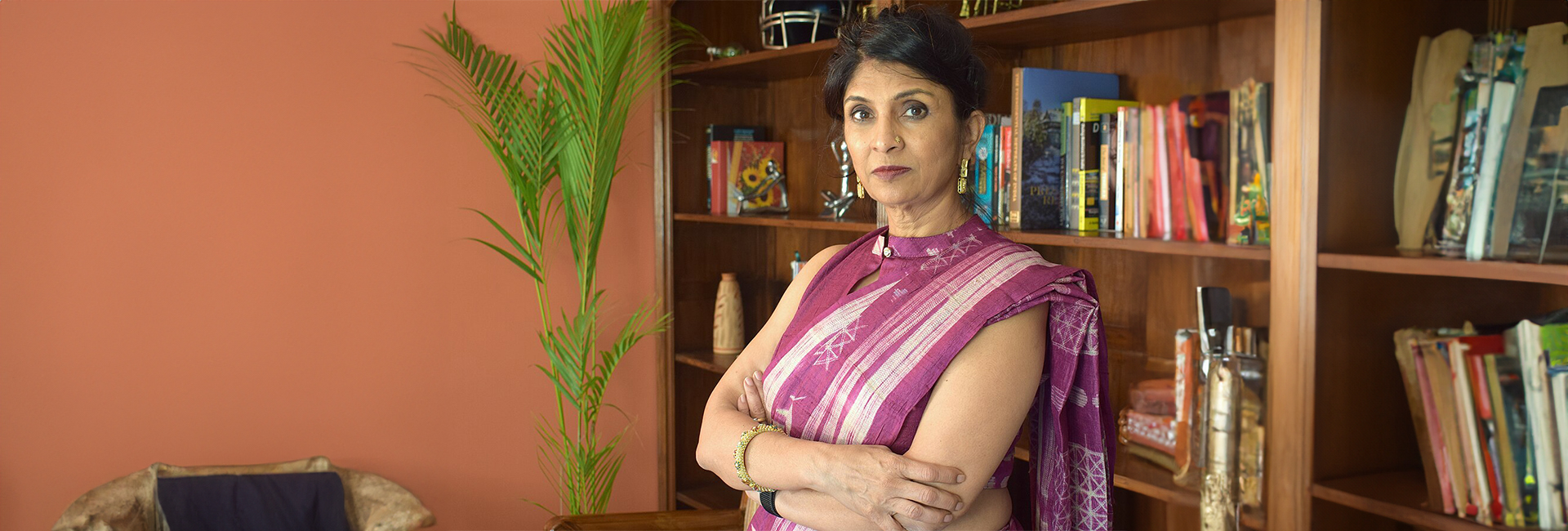(November 6, 2024) In 2006, Vani Kola returned to India after spending more than two decades in the United States, fueled by a desire to be part of a rapidly transforming landscape. This wasn’t just any homecoming; it was the beginning of a bold venture — Kalaari Capital, an early-stage venture capital firm that would become one of India’s leading investors in technology startups giving 3x to 5x returns to its investors. Kola, a pioneer in venture capital in India, has invested in companies like Cure. Fit, Myntra, Snapdeal, Dream11, Urban Ladder, and YourStory which have thrived under her guidance. At 60, she has over 22 years of entrepreneurial experience in Silicon Valley and has invested in over 90 companies.

Recognized as one of Fortune’s Most Powerful Women in Business, Kola is dedicated to collaborating with entrepreneurs to create high-value businesses. What truly distinguishes her is her commitment to being accessible to her founders, along with her focus on nurturing and mentoring ambitious first-time entrepreneurs. “I approach everything with the question, ‘Will I find meaning in the context and horizon of time that truly matters to me?’ Ultimately, everything you do is for yourself,” said Vani, whose venture capital firm has grown to have over $650 million in assets under management.
Understanding that AI is the future, Kalaari Capital has been investing heavily in AI startups. Recently, they invested $2 million in Hyperbots, a startup that uses AI for finance and accounting, which was followed by another $2.25 million investment in Figr which uses AI to design products insanely fast with ease. Explaining why they invested in Figr, Kalaari Capital said, “Generative AI is now revolutionising design space, with AI agents autonomously executing design tasks and streamlining workflows from ideation to implementation.”
Pushing the Envelope
Vani’s story begins in Hyderabad, where she was born in 1964. Growing up, she faced the challenge of being one of only six women in a class of 400 electrical engineering students at Osmania University. The odds were against her, but Kola has always believed in doing things differently. “I was encouraged to dream, to pursue a career in a male-dominated world.” She is grateful that she had a nurturing home and an encouraging school environment that nudged her constantly to push the envelope.
The Silicon Valley Chapter: Building Success Abroad
After earning her bachelor’s degree, she moved to the US in 1985 to pursue her Master’s degree from Arizona State University. This was a time when very few women chose this path, especially in fields dominated by men. After completing her studies, she settled in California, where she founded her first startup, RightWorks, in 1996. The company focused on global procurement management and quickly gained traction. Under her leadership, RightWorks was sold for an impressive $567 million, establishing Kola as a force to be reckoned with in the tech world.

Vani Kola
Her success didn’t come without challenges; Kola often faced gender bias, with male colleagues questioning her commitment as a mother while pursuing her career. Reflecting on this, she recounted an experience where a male acquaintance asked if she felt guilty for leaving her infant daughter at home while traveling for business. “It just doesn’t occur to men! You just have to develop tools to cope,” Kola explained. It was her tenacity that helped her navigate these challenges, establishing herself as a strong entrepreneur in Silicon Valley. For many, including Kola, Silicon Valley represented not only a place of opportunity but also a launching pad for ideas that would later impact India and the world.
Returning to her Roots
After selling her second startup, Certus, in 2005, she took a moment to reflect on her future. It was during a solo trip to Hawaii that Kola experienced an awakening, realising it was time to return to India after briefly travelling to her homeland. It felt like a new country to her and she was drawn to it.
“This is a very different India and if I don’t participate in it, India will be fine, but I will miss out. My entrepreneurial fervour or my entrepreneurial bone drove me here.” — Vani Kola
Founding Kalaari Capital: A Return with Purpose
Within a few months, she packed her bags and bought a one-way ticket to India in 2006, where she set up Indo-US Venture Partners which was later rebranded as Kalaari Capital, taking inspiration from Kalaripayattu, a martial arts form which to her represented entrepreneurial traits she deeply values – commitment, strength and perseverance. Having raised funds in North America, she came with credibility and reputation but she had to unlearn many things. Having worked for 22 years in Silicon Valley, she was keen to make India global. However, back then, the market was yet to evolve. “My US network and experience was useless because Indian companies weren’t rapidly going global at that point,” she said, adding that’s when she started venturing into e-commerce and gaming. “You can call it a leap of faith or a deep conviction but we started taking early bets on that.” Despite entering into a new space in India, Vani was happy to take the chance as she saw it as an adventure and a learning experience that could test her in a fulfilling way.

Starting with an initial fund of $150 million, Kalaari Capital has expanded its portfolio over the years, investing in diverse areas such as e-commerce, gaming, digital media, and healthcare. Kalaari Capital was an early investor in Snapdeal, Myntra, Dream11 via Simplilearn, and many companies that made great returns. “Coming from a very conservative middle-class family, the sense of money and its value is very intimate to me. Money is a means to an end; it is not the end itself. But money brings responsibilities and obligations. We have always wanted to create par returns globally and have been able to consistently return 3x to 5x of our funds. This puts us in the top quartile in the world,” the Global Indian revealed.
Her journey also intersects with the broader narrative of the Indian diaspora, particularly in Silicon Valley, where many Indians have made significant contributions to technology and entrepreneurship. This community has played a crucial role in the growth of the tech industry, bringing diverse perspectives and innovations. Vani, as part of this community, has demonstrated how cross-cultural experiences can lead to meaningful contributions back home.
Empowering the Next Generation of Innovators
Throughout her career, Kola has remained committed to empowering others. As a mentor to many first-time entrepreneurs, she actively seeks to bridge the gap in the venture capital space for women. When discussing the scarcity of women venture capitalists, she emphasised the need for more women in STEM leadership positions to create a more inclusive ecosystem. “You need women in those positions to be tech venture capitalists,” she asserted.

Reflecting on her journey, Vani Kola encourages aspiring entrepreneurs to embrace challenges without fear of risks. “The principle of pushing yourself for challenges without worrying about calculating the risk, but instead looking at the upside, looking at the positives was imbibed in me.” Her story is a powerful reminder that success is not just about the destination but also about the journey and the lessons learned along the way.
As Vani Kola continues to lead Kalaari Capital and support the next generation of entrepreneurs, her legacy will undoubtedly inspire many to break through barriers and redefine what is possible.
- Follow Vani Kola on LinkedIn
Read a similar story of:
Manu Chopra, empowering rural India with AI.
Sridhar Vembu, building a billion-dollar business from rural India.




